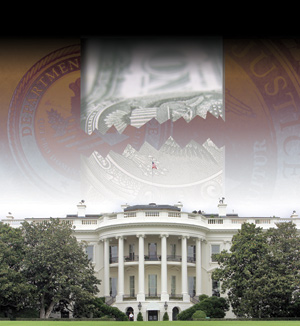
(FinalCall.com) – Some ex-offender advocacy groups as well adult and juvenile justice activists are expressing disappointment in the Obama administration’s 2012 federal budget for the U.S. Department of Justice which among other things will increase spending on building prisons and cut funding for juvenile justice programs.
The proposed $28.2 billion budget, released Feb. 14, reflects a nearly two percent increase from 2010. According to the Dept. of Justice, the new budget is “fiscally responsible” and “streamlines programs and redirects funding to improve the capabilities of Justice Dept. agents and attorneys.”
However, the potential impact the cuts and re-allocations may have on adults and juveniles in the criminal justice system has raised some eyebrows.
“This budget reflects a disappointing continuation of policies rejected by researchers and advocates and will serve to widen the net of justice involvement, doing little to improve public safety,” said Tracy Velazquez, executive director of the Justice Policy Institute in a Feb. 16 press release. The Justice Policy Institute is a Washington, D.C.-based advocacy and research group, which according to its website is dedicated to ending society’s reliance on incarceration.
The group released a comprehensive report and fact sheet saying the new budget wrongly focuses on expensive, ineffective and unfair policies. These policies, says the report, are more likely to adversely affect communities of color, which are “disproportionately impacted by the criminal justice system.”
Dr. Ashley Nellis, research analyst for The Sentencing Project, a national research organization dedicated to criminal justice reform responded to The Final Call in an email saying, “We are very disappointed in the president’s proposed budget and its low prioritization of at-risk youth.”
The greatest areas of concern, according to the Justice Policy Institute report, are in the following areas:
-Most of the over $500 million proposed for Byrne Justice Assistance Grants goes toward increasing law enforcement instead of prevention, education and drug treatment
-Over $600 million goes to Community Oriented Policing Services for hiring of police and other law enforcement agents, instead of job creation, housing and treatment programs needed for increased public safety
-The proposed $50 million cuts in juvenile justice funding geared toward prevention could result in more youth being held in juvenile and corrections facilities
-Combining funds previously allocated separately for drug courts, mental health courts and other specialty courts may impact effective community-based treatment services
-Increased funding for prisons could lead to higher prison populations when many states are reducing incarceration and seeking alternative and more effective solutions to locking people up
Dr. Nellis also serves as co-chair of the National Juvenile Justice and Delinquency Prevention Coalition, a group of more than 50 national and state organizations working toward reforms in juvenile justice. Cuts in spending and support drastically reduce the ability to address the most important issues confronting youth crime and justice, Dr. Nellis warned. Youth of color are more likely to come from low-income communities without support systems that help youngsters avoid delinquency, she added.
The Dept. of Justice budget mentions the importance and need for diversion, re-entry and drug rehabilitation programs and reducing incarceration rates and allots $187 million for such programs. However, the budget overview also notes, “With increasingly effective enforcement of federal law and administration of justice comes a greater need for prison and detention capacity.”
The budget’s proposed $50 million reduction in funding for juvenile justice and child safety programs aims to “refocus” the funds toward other competitive and incentivized grants state and local governments apply for based on compliance with the federal Juvenile Justice and Delinquency Prevention Act provisions.
“Instead of slashing funds to juvenile justice programming, we support cost-effective solutions and resources to assist states and communities across the nation so that we can enhance public safety,” said Dr. Nellis.
The Justice Policy Institute outlined several recommendations and argued, “If the administration and Congress want to spend scarce federal dollars to improve public safety, they should invest in programs and policies that have been shown to have positive and long-lasting effects on individuals and communities.”
The group’s recommendations include investing in: community-based substance abuse and mental health treatment; evidence-based prevention programs for youth; employment, job skills, and education resources for underserved communities; and diversion programs that keep people from entering the corrections system.
“We should spend our money on treatment programs, on job creation and on teachers, not prison beds and police helicopters,” said Ms. Velazquez.
The Nation of Islam under the Honorable Elijah Muhammad had a successful history and record of accomplishment for reforming and rehabilitating thousands of men and women previously incarcerated, addicted to drugs, alcohol or engaged in criminal or illegal activities.
Minister Louis Farrakhan is continuing that work through the National Prison Reform Ministry of the Nation of Islam.In his book, “A Torchlight for America,” Not only is the prison system not set up to reform people, but America has not found ways to curb crime and constant law breaks, especially Black people, Min. Farrakhan noted.
Min. Farrakhan wrote, “Since so many of the inmates are our people, why not let us reform them and help to save some of the taxpayer’s money? Why not let us handle the inmates and lessen the taxpayer’s burden? We can handle the inmates for less than what America is paying now. And better, we can reform our people and make them productive members of society.”












